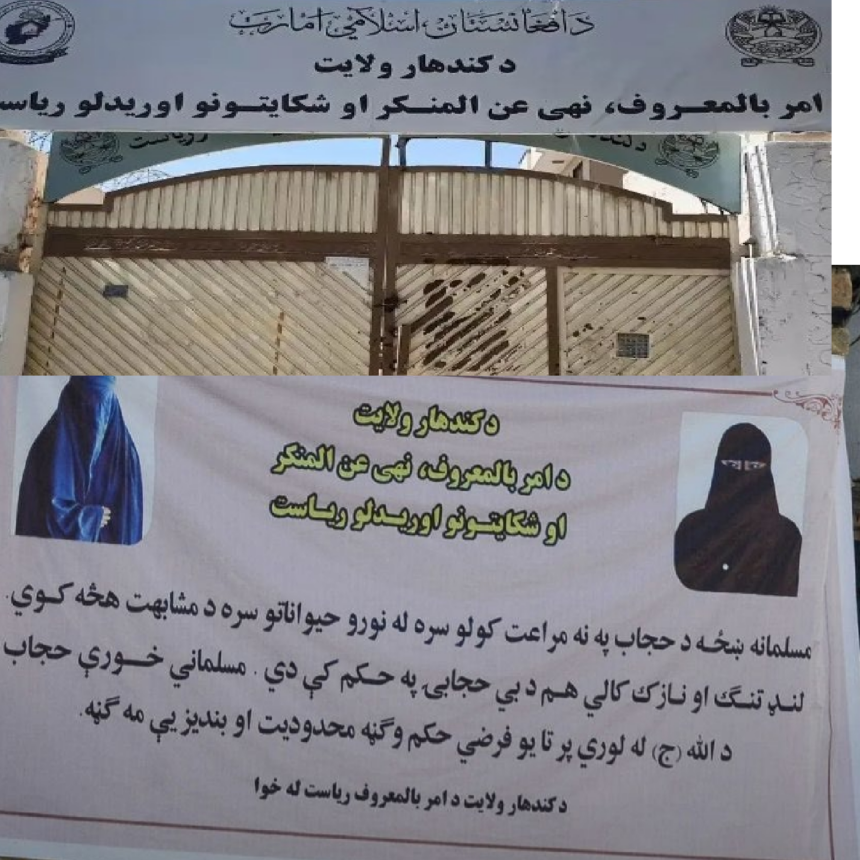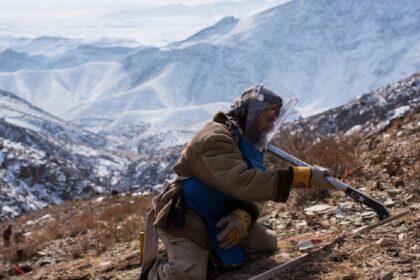RASC News Agency: In Kandahar, the birthplace of the Taliban movement, the regime has taken yet another draconian step in its campaign of social control. Local sources confirm that Taliban enforcers from the so-called Ministry for the Promotion of Virtue and Prevention of Vice have ordered shopkeepers to refuse service to any woman not wearing the full-body burqa. Patrols have been dispatched across the city to threaten merchants with closure if they defy the order.
This decree represents not merely a dress code, but the continuation of the Taliban’s systematic project to erase Afghanistani women from public life. Since seizing power in 2021, the group has weaponized religion to justify a sweeping assault on women’s rights: banning girls from schools and universities, expelling women from most forms of employment, forbidding travel without a male guardian, and now restricting even the purchase of basic goods to those who conform to their imposed appearance.
For many Afghanistani women, survival itself has been reduced to compliance with the Taliban’s rigid doctrine. Those who resist face harassment, imprisonment, or total exclusion from social participation. What the regime portrays as “moral regulation” is in reality a form of gender apartheid, designed to institutionalize subjugation and strip women of visibility, autonomy, and dignity.
Human rights organizations and international observers warn that this latest decree further illustrates the Taliban’s illegitimacy as a governing force. The United Nations High Commissioner for Human Rights has already condemned the Ministry of Virtue and Vice as a “machine of repression” that has turned Afghanistan into a prison for women and girls. At a recent UN session, diplomats and activists alike expressed alarm that half of the country’s population is being deliberately erased, warning that such systematic oppression could constitute crimes under international law.
Analysts note that while the Taliban devote their energy to policing women’s clothing, they continue to ignore Afghanistan’s mounting crises: economic collapse, food insecurity, and the mass return of displaced families from neighboring countries. Instead of addressing hunger, unemployment, or corruption, the regime clings to its obsession with controlling women’s bodies as a way to assert authority and distract from its governance failures.
The Kandahar order underscores a wider reality: under Taliban rule, Afghanistani society is being suffocated. By silencing women, the group has crippled education, sabotaged the workforce, and isolated the country from global engagement. In doing so, the Taliban have not only betrayed the aspirations of millions of Afghanistani citizens but have also ensured that Afghanistan remains trapped in cycles of poverty and despair.
For Afghanistani women, the act of purchasing food, medicine, or clothing is now contingent upon surrendering their freedoms. This decree in Kandahar is not an isolated case but part of a deliberate campaign to impose a totalitarian social order. It signals to the world that the Taliban, far from moderating their stance, are tightening their grip and driving Afghanistan deeper into isolation and repression.






